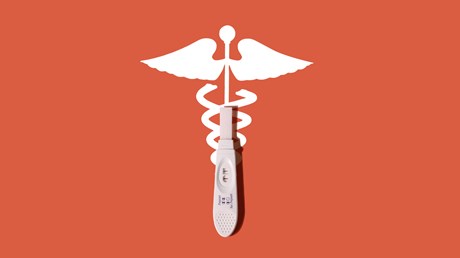Even if the pills and procedures seem similar to elective abortion, doctors know the difference between treatment when a pregnancy ends and treatment to end a pregnancy.

Roughly 10 percent to 20 percent of known pregnancies end in miscarriage, and one in 50 pregnancies will be diagnosed as ectopic pregnancies, a potentially fatal condition in which an embryo develops outside the mother’s uterus.
Both miscarriage and ectopic pregnancy can be physically and emotionally painful. For Christians who believe human life begins at conception, losing a baby even early in pregnancy is a singular kind of grief. There are ministries for families suffering miscarriages, and many churches hold funerals or memorial services for babies who have died before they were born.
But miscarriages and ectopic pregnancy removals aren’t merely a spiritual matter. They also have a clinical term: abortion. Miscarriages are described in medical language as “spontaneous abortions,” while the removal of an ectopic pregnancy can be referred to as an “induced abortion.”
That can lead to confusion as Americans debate abortion policy after a leaked draft opinion from the US Supreme Court signaled the possible overturning of Roe v. Wade. Outside of a medical context, “abortion” is used colloquially to describe “elective abortion,” or the intentional killing of a healthy and growing preborn child.
In the aftermath of the leaked opinion, some abortion advocates have suggested that new abortion restrictions enacted could endanger health care for pregnant women. They worry that pregnancies that end through miscarriages or as a result of ectopic pregnancies will be wrapped into the new state laws.
But many Christian ob-gyns, including those at major antiabortion institutions, such as the Charlotte Lozier Institute and the American Association of Pro-Life Obstetricians and Gynecologists ...
from Christianity Today Magazine
Umn ministry


.gif)

.gif)
.gif)
